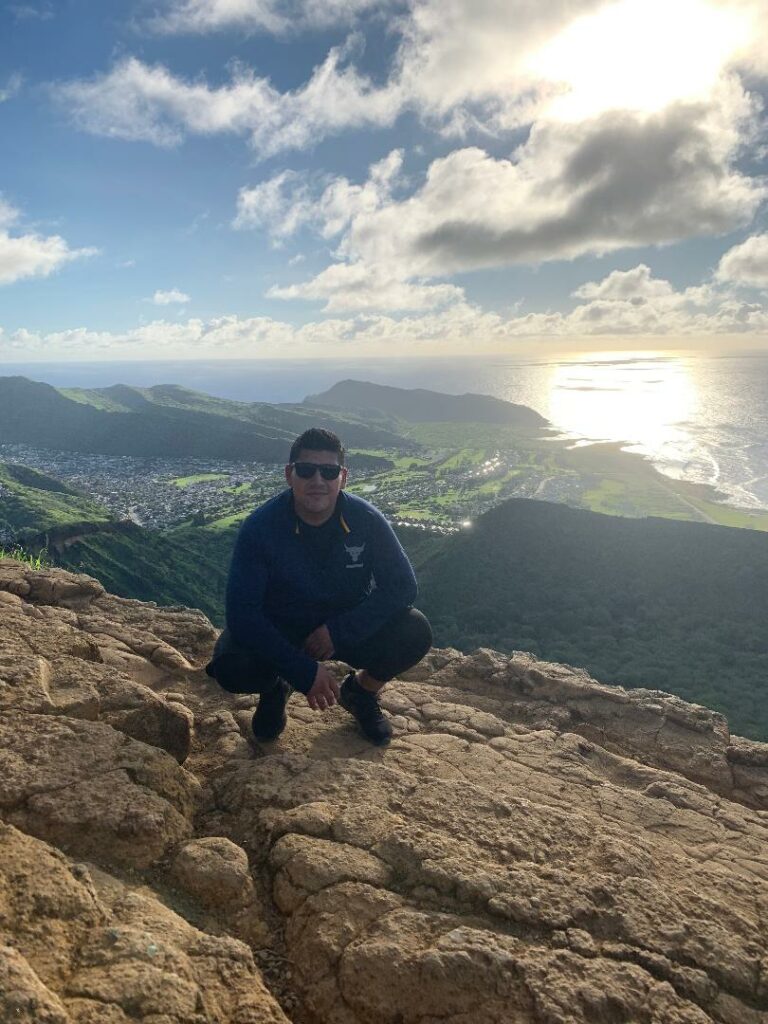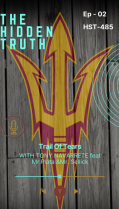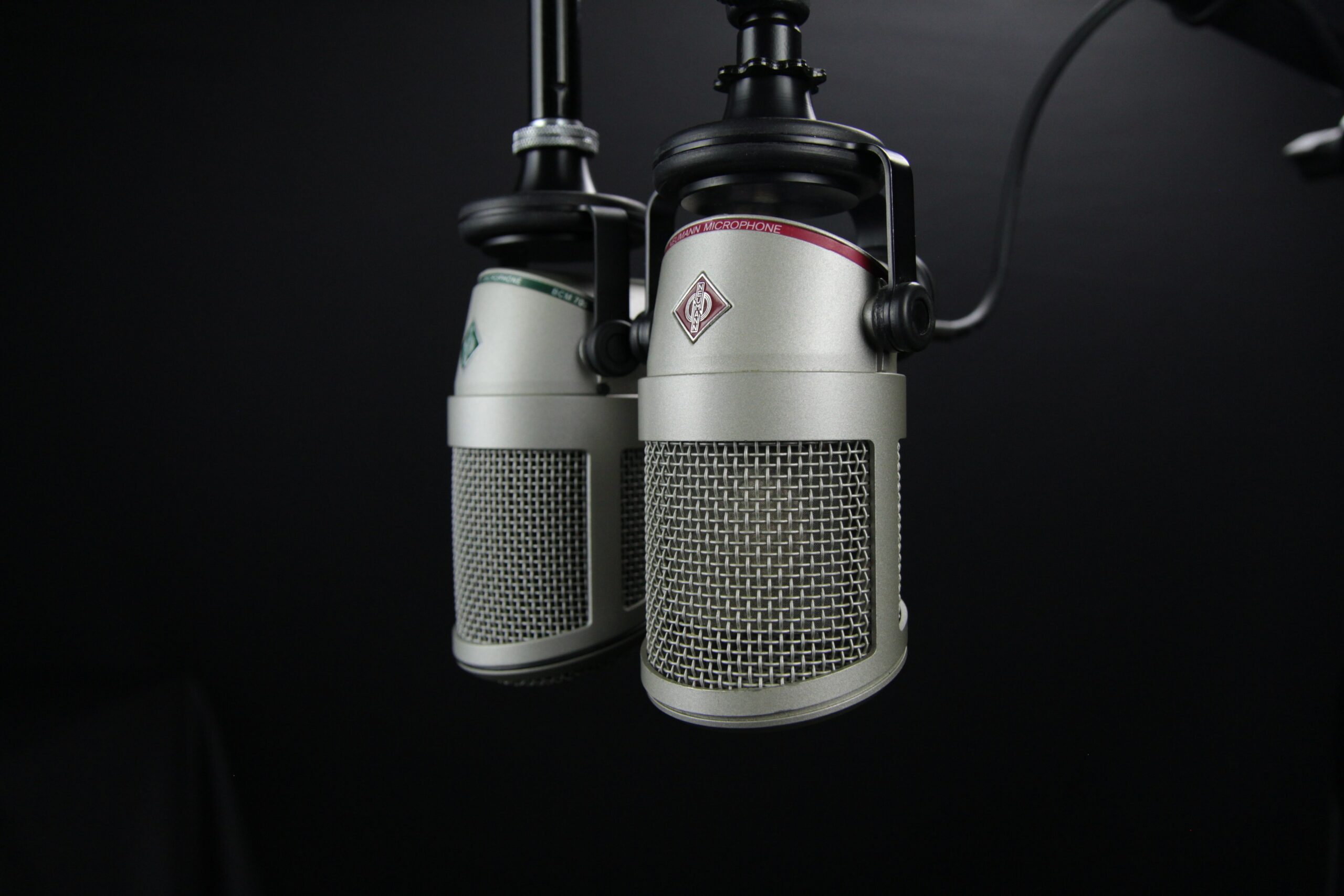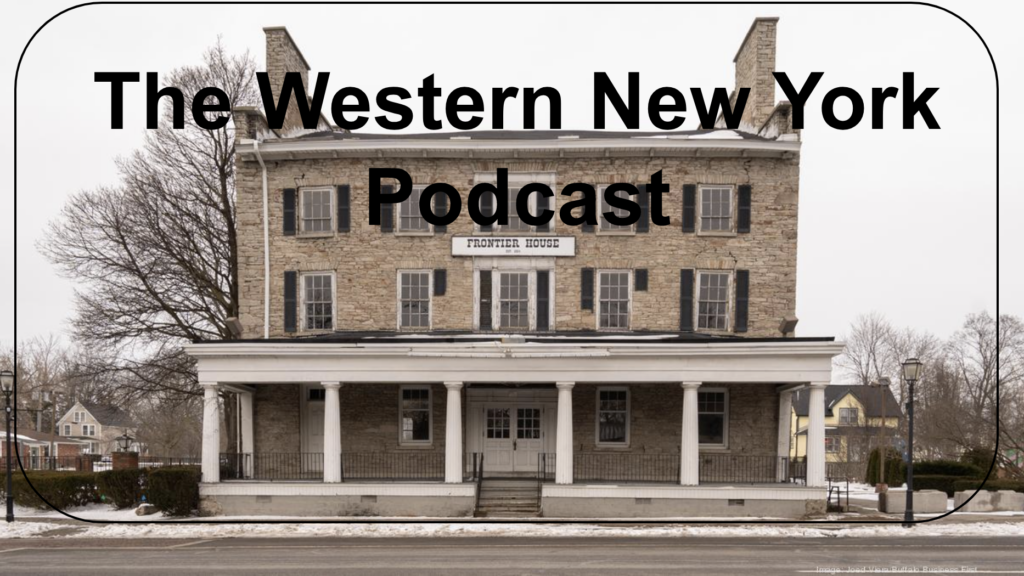Blog post and podcast by Antonio Navarette
Up next The Hidden Truth produced by Tony Navarette. Tony interviewed his father, who only speaks Spanish, about his experience emigrating to the USA. Tony translated his father’s answers into an informal discussion about immigration history. In his second episode, Tony interviews two educators, teacher and former California State Assembly Representative Mr. Rene Plata and Mendota High history teacher Mr. Thomas Sellick, about the devastating forced migration we now call the Trail of Tears. Enjoy!
–Dr. Marissa Rhodes, professor of HST 485: History in the Wild

My name is Antonio Navarrete. I am a current History major at ASU. When I first enrolled in the class, I believed it would be using podcasts for our classes as opposed to creating one ourselves. This made me full of excitement and fear at the same time, but I was up for the challenge.
While conducting research for my topics in the podcast, I came through a couple of challenges. The main one was picking a topic that would be interesting, informative and passionate to me but at the same time, I did not want to present them from a biased point of view. Two topics that I found very interesting but at the same time hard to find concrete information were the Trail of Tears and immigration. When it came to talking about the topic of immigration, it was very difficult because I did not want to state if it is bad or good. I wanted to give a firsthand account based on parent’s experiences from immigrating to the Amnesty that President Regan brought forth. Now with the Trail of Tears, I wanted to go with a topic that I believe is very critical to U.S. history that never is really talked about through all the history classes I have taken. In both podcasts, I experimented with the different forms of the podcast to see what would be most effective.
While recording I caught myself being extremely nervous. This was way out of my comfort zone. I was way more nervous when I had some of my former teachers involved with one of the episodes. While my confidence level was not the greatest even after I got some good feedback, I am still optimistic people will love it. I can happily say it was a great experience and have contemplated doing more episodes in the future.
I’ve been both an academic historian and a history podcaster for about six years. I love doing it and I am constantly confronting the inconsistent (and sometimes conflicting) skill sets required for my parallel roles. I chose the topic of history podcasting for my HST 485 History in the Wild course and designed the course to be as collaborative and applicable as possible to their real-world needs. ASU’s humanities students deserve to take courses that harness their passions and natural curiosities so that building a wide variety of skills (our end goal) doesn’t feel like work. The podcasts that resulted from this course exceeded my expectations. –Dr. Marissa Rhodes, professor of HST 485: History in the Wild

Tagline: The Hidden Truth
Title: Trail of tears
Podcast Topic: The Truth of the Trail of Tears
Titles and descriptions of your two sample episodes: For episode one, I will be doing a recent account of how immigration has been viewed in the United States from a media/public opinion and a first-hand experience. In the second episode, I will be looking into the Trail of Tears, how it came about, and the prospect of the people who it affected.
Topic Ideas for an additional eight episodes: Some of the ideas I would consider would go more in-depth with some of the injustice that has happened in the United States and how it has been represented to the public than how it is represented now. Some examples would. be reconstruction era after the Civil War, more in dept with immigration, how Asian American were treated during World War. Some good topics would be international affairs of the U.S as well.
Format & Rationale: When it comes to format, I believe It would be best if I have a mixture of long-form and short-form podcasts. Some topics are easy to have a long conversation, but it is best to have them be short because you do not want to drown the conversation with repetitive arguments. I would have some episodes carry interviews guests and from time to time have multiple hosts keep the listener guessing how the episode will play out. Some episodes might start with a single host but perhaps continue the conversation with multiple guests in a later episode.
POV/Approach/Style/Voice & Rationale: The approach I was looking forth is conversation-oriented and also has storytelling integrated into the conversation depending on the topic.
Episode Frequency & Rationale: This will be a weekly produced podcast. It will carry into a serious while each episode will have a different topic the theme will tie all of them together.
About the Host: I will be presenting myself as serious but will have a relaxed, energetic and fun approach, while some of the topics I will be presenting might have a dark tone to them I will try to show how amazing these topics and the logic behind them can be to study.
Target Audience: I want to target teenage students as well as college students that normally would think of history as being full of mystery and deception like a movie full of suspense.
Explain why your podcast topic, format, POV/style, episode frequency, and host identity are attractive to your target audience: I believe both short- and long-term podcast are a very good idea as well as a weekly re-lease because of how our world is shaping, we do not have time to sit every day we are moving to a fast past lifestyle. Sometimes the drive to work the weekend is not enough time to get the simplest things done. This makes it so that sometimes we do not have the best attention span. This way on weeks where we are jammed packed with things to do, we can have a short form to listen to, and on those weekends that we have a good amount of free time on our hands, we can listen to a long-form style podcast.
Describe two ways you will reach your target demographic two ways I could teach my target audience would be by social media. If you have a platform where everyone can see it as to why they scroll down their timeline then some might listen to it if they like it, they will pass it on to the rest of their peers. The second would be by school email. Teachers can encourage some of their students to listen to it, such as we did here in HST-485 where we had to listen to several podcasts that I did not know existed.
How will you develop a sense of community and belonging among your listeners? In my opinion, to be able to build a sense of community you have to be transparent and believe in what you are presenting. The second work hard to know what your listeners/ audience want to conversate with. If their voice matters that make it more fun, you have more interaction with different minds, opinions, and ideas that can catapult you to even larger platforms.
D. What kinds of folks do you anticipate will object to or dislike your podcast? I anticipate that people who have lived their lives thinking one way and believe that the way they
have been tough is the only way. I would like to tackle some of the most controversial topics present, how it was displayed and how the feelings for that topic are now without creating a bias, but some may take offense to that.
E. What are some ways you can market your podcast to steer away from folks who expect something different and will be disappointed? A good way I can market my podcast could be one by association with other podcasts the other by putting a short preview of the episode, even a generic clip of me being me because most times the topic or the podcast do not have flaws the host does under the listener’s opinion.
12. Why is your podcast needed? I believe that this podcast is needed so you can try to show that history goes far beyond storytelling. That there is a narrative to be made and why that narrative is made in historical events. This can bring more the simple answer history is boring we know the ending quotes I get from my peers all of the time.
How many podcasts currently exist that are similar to yours? Name them. Up to this point, I came across one podcast that is similar to the podcast that I am trying to present some of these are Shiloh Museum of Ozark History Stuff you should Know, Trail of Tears.
Browse some of their reviews on Apple Podcast or another pod platform. What do people like or dislike about podcasts similar to yours? While going through Apple podcasts, I came across a few that told the story of what happened in the Trail of Tears. For some reason, I was not able to see detailed ratings on the podcasts, maybe because most of them were from 2008-2010 but had high ratings. I loved that there was more podcast that brought forth this horrible act by the U.S. government. The bad side is that most of them only had one or two episodes on the series, only one had a whole series from different points of view at the time.
How do you anticipate that your podcast would fare if the same folks were reviewing your podcast? I believe if the same people listen to my podcast, they will enjoy it and maybe find things that I missed or could have improved in a better aspect.
Are there any perceived holes or silences within your podcast’s subcategory that seem like they need to be filled? I believe that more subcategories need to be filled. I would like to have some people on the other side of the spectrum present their experience. I think I could have more podcasts to try to bring forth other arguments from different eras in U.S. history.
How does your podcast address a silence or hole in the genre OR what does your podcast do differently than others that are similar? I believe that my podcast will present something that the others do not by bringing in a common person and “everyday individual” such as my dad and my high school teachers that normally would never get the opportunity to show their side of the story. Most times you have high-profile people, celebrities or scholars but it is rare when the person who just lives their job gets those opportunities. That’s whose experience and a story I find interesting and would say has a lot to show about certain subjects.
What auxiliary components would you launch alongside the podcast? Alongside the podcast, I would launch a website, as well as a social media platform. On the website, I can do a blog of the topic at hand as well as a discussion board where the viewers can interact with me or each other. The more people you get talking, the more the podcast will grow I would want it to be as accessible to as many people as possible.
Explore the auxiliary components created by other podcasts. Feel free to use the podcasts you explored in the first two weeks of the course for this part of the assignment. What kinds of add-ons do they have? One website I saw that was connected to the podcast was the Memory Palace. They had a blog and a description of what the podcast was going to be about. They also had categories for their episodes or a list from newest to older even by length or popularity. At the same time, it was simple and easy to navigate.
Which auxiliary components would best suit your podcast and your target audience? Why? I believe social media suits my podcast best. Social media is the best way to get content out these days. It has become even bigger than YouTube. Most YouTube channels get visited by the short clips presented on their respected social media platform.
How might you made your podcast more accessible for people with disabilities or some other disadvantage that prevents them from accessing your content readily? When it comes to disabilities, I will make sure that for those who cannot listen or have a hard time they can read when the podcast is about in detail, when there is emotion in the wording you can have accurate punctuation.
Describe some of the feedback you received in your peer reviewers and what you did to address these criticisms: Some of the criticism I received was that my ideas were too broad that they could not fully understand what direction I went in. I took it to myself to focus on what they said and narrow the sample size. For example, I was going to focus on immigration, but the nation has had immigration since it came to be. So, I tried to focus on more recent events while not directly with the topic I brought forth the topic of narrative within the history of the event. The reason I chose to appeal to my criticism is one to put in the best work possible. You have to listen while the opinion of one may not reflect the opinions of the whole group at least half will. This also makes you think of new ideas and will help you brainstorm to adapt and evolve in the long run.
Describe some of the feedback you received from the instructor and what you did to address those criticisms: A good feedback source I received from my professor was the one that had to do with my sources. This is critical because if your sources are horrible no matter how hard you try your podcast or term paper will not be good at all. I had to completely scrap a couple of them or even modify how some will be presented in the podcast so I can make sure that I am not misinformed and that my audience does not get misinformed due to me not making sure that the sources were credible to academic standards.



